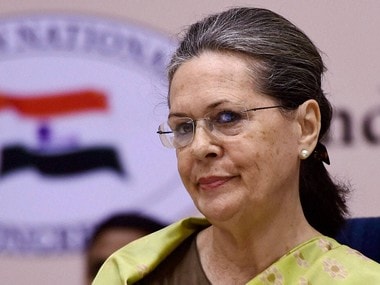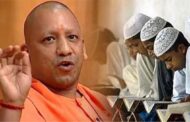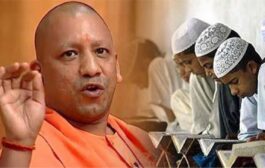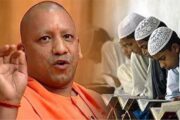The political temperature in West Bengal seems to be rising briskly, which is distinctly odd, given that the Lok Sabha elections are over five months away. The contestants are either not leaving anything to chance or are peaking a little too soon.
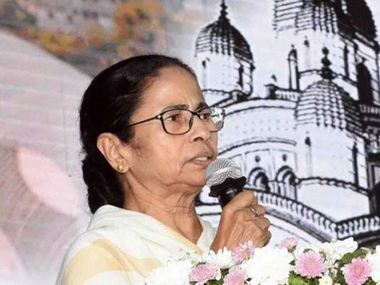
Image ofWest Bengalchief ministerMamata Banerjee. Twitter/@MamataOfficial
The Bharatiya Janata Party (BJP) has been sensing something, though it is not easy to identify what chimaera is chasing. Whatever it is, the party has embarked on an ambitious programme of mobilisation: its key elements are a three-pronged rath yatra, and a two-pronged campaign centring on the demand for a National Register of Citizens (NRC) in emulation of the exercise in Assam and the promotion of the Citizenship (Amendment) Bill, 2016, destined soon to become an Act of Parliament if the BJP has its way. We shall return to these in a bitThe Trinamool Congress, too, seems to be in election mode. A few things of note have marked the beginning of its campaign: the first is a series of intra-party meetings and public programmes which, it has planned, will culminate in a grand rally of forces opposed to the BJP to be held in January; the second is its Matua outreach embodied in a visit by Chief Minister Mamata Banerjee to the community’s headquarters on Thursday; and, finally, there has been a concerted attempt to win over voters from north India, mainly Bihar, over the past few days.
Let’s begin with the Trinamool and its Matua outreach. On Thursday, Banerjee went to Thakurnagar, the Matua headquarters. The Matuas constitute Bengal’s second largest scheduled-caste community and are migrants from East Bengal/East Pakistan/Bangladesh. They have a presence in six (by some reckonings eight) districts in south Bengal and in 78 Assembly constituencies but are concentrated in North 24 Parganas – especially in the Lok Sabha constituencies of Basirhat and Bongaon, which have seven Assembly segments each.
On Thursday, during her visit to Thakurnagar, Banerjee announced that the government would set up a university a few kilometres from the Matua headquarters, for which a plot of land has already been identified and set aside. It will be called Harichand Guruchand Thakur Universityafter the founder of the Matua sect and his son. She also announced the beautification of the area around the Matuas’ main temple and conferred the highest state government award on Boroma (Binapani Devi), the current preceptor of the socio-religious community, who just turned a hundred. According to some reports, however, she will turn 98. Nevertheless, the Trinamool has fast-tracked the celebrations.
Banerjee successfully brought the Matuas into the Trinamool fold in 2009. Since then the combined efforts of the BJP and the Left have not succeeded in impairing this connection. There may have been some apprehension amongst the ruling party leadership that the BJP campaign over the Citizenship (Amendment) Bill could wean away a significant section of the Matuas given that many of them have not yet been granted citizenship; the amendment could facilitate the process.
Banerjee’s attempt to court the north Indian or Bihari voters of Bengal, showed an ugly face, however. On the occasion of Chhath Puja, she claimed she participated in the festival and pointed out that she had had several ghats repaired to help devotees perform the necessary rituals. That’s all very well, though some would say that these repairs were more important to ease the travails of passengers who used ferry services on a daily basis. The problem was that a Trinamool minister, Shobhandeb Chattopadhyay was complicit in holding the puja in the Dhakuria lake. Last year, the National Green Tribunal (NGT) had banned devotees from performing any rituals at the lake, because of its ecological fragility and importance – the area is known as the ‘lungs’ of South Kolkata. It had relented in response to an eleventh-hour petition but imposed a long list of ‘don’ts’ on devotees.
This year, the NGT had simply banned any observances at the lake. Nevertheless, hordes of devotees descended on the lake, in turn simply ignoring not just the ban but last year’s list of don’ts, including the lighting of firecrackers. The damage done to the ecology and biodiversity — the lake host many migratory birds — is incalculable. The costs are still being counted, but the preliminary assessment is that it will take months for the lake to recover from this onslaught. The administration is responsible for allowing it to happen. The police, who were present in numbers, twiddled their thumbs. The Kolkata Metropolitan Development Authority (KMDA) which is (nominally) the custodian of the lake apparently did not even know that this attack took place. On Thursday, that was what it unconvincingly claimed in a letter to the police. A public-interest petition has been filed, which, inter alia, prays that the KMDA be stripped of its ‘guardianship’. The only possible conclusion is that nobody bothered to implement the NGT order because the ruling party, in election mode, wants to court a constituency known thus far to vote for the BJP.
This substitution of one kind of identity politics for another, at the cost of upholding the rule of law and the integrity of ecology and the environment, could, or should, backfire on the Trinamool Congress.
The BJP on its part is up to its usual business of trying to polarise the state along religious lines. Except for the fact that the Bengal unit has suddenly found a kite to fly in the form of a proposal that party president Amit Shah should contest from a constituency in the state in the 2019 elections. Considering that Shah has chosen the Rajya Sabha route to a seat in Parliament when he could have found a safe seat in Gujarat or elsewhere, it does seem to be something of a stretch to imagine that the master strategist will submit himself to such uncertain electoral demands.
The BJP’s proposed rath yatra also seems to be becalmed for the moment. The plan was that the yatras would originate from Tarapith, a shrine in Birbhum district, Gangasagar, the site of an annual religious fair in South 24 Parganas, and Cooch Behar, in north Bengal on the 3, 5 and 7 December, followed by a massive rally at the end of January. The problem is that the administration has not yet responded to missives seeking permission for the yatras. Though the state BJP has appealed to the Union home minister and the Election Commission and has plans of moving court if the necessary permission is not forthcoming, the uncertainty seems to have taken the edge off its preparations. One hopes that BJP leader (and film star) Locket Chatterjee’s threat that those who try to stop the yatra will be crushed under the wheels of the chariot is metaphorical, but it hasn’t noticeably raised saffron morale.
As for the NRC and Citizenship Bill, the BJP seems to be backpedalling. Reports in Bengali news channels have suggested that the state unit is reconsidering an aggressive campaign and has written to Shah in this connection. If these reports are true – there is no corroborative evidence yet – it could well have been occasioned by the lukewarm response to the idea.
The Matuas were supposed to have been logical targets for such a campaign, but Banerjee’s announcements on Thursday could well have wrested the initiative.
With significant rallies planned by both sides early next year, it is unclear whether the rising political temperatures will drop as winter progresses. But as things stand the ruling party in Bengal is well on top of the situation, notwithstanding the Congress state unit’s declared intention to fly solo, a project that can only culminate in a disastrous crash-landing.
source: Firstpost.com

